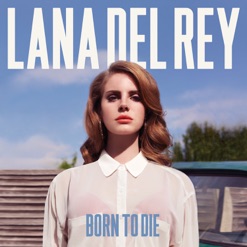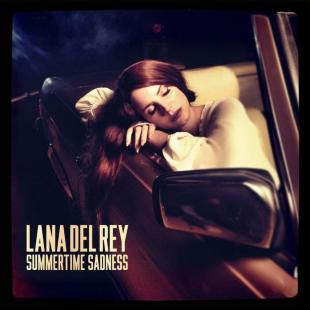Born To Die at 10: How the influence of Lana Del Rey's debut can still be felt today
Although misunderstood critically around the time of its release, Lana's first record has become a benchmark for pop music, as well as helping transform its artist into a generation-defining songwriter.

Lana Del Rey entered into the public consciousness a mystery. The woman formally known as Elizabeth Woolridge Grant had, in pursuit of her art, surrendered herself entirely to aesthetic.
She was a gangsters moll, a femme fatale with a heart of ice, a victim trying really, really hard to not be perceived as such. This was no accident, this is how she wanted it - what the character of Lana Del Rey (and yes, Lana Del Rey has always been a character, a construct) was.
Today (January 27) marks a decade since Lana's landmark debut album Born To Die was released. An immediate success, it debuted at Number 1 on the Official Albums Chart, with opening week chart sales of 116,000. With overall chart sales exceeding 1.25 million and a staggering 150 weeks on the chart in total, it's no surprise Lana's debut is still her most successful in the UK.
But why, exactly, has Born To Die endured? There are myriad of reasons we'll discuss below, but to put it quite simply: there are some albums that simply - from the moment they're released - bend the mainstream culture to their will. Born To Die is one such album, and you can still feel the reverberations of its arrival today.
MORE: Lana Del Rey's Official Charts history in full
But we can't talk about Born To Die without touching on Video Games. The first song released from the records, Video Games introduced Lana as both a mystery to be solved and an idol to be mimicked. She emerges in the lo-fi visual like someone that isn't entirely real; with bee-stung lips and smokey-eyed mystery imploring you to want to know more. It worked. The track peaked at Number 9 on the Official Singles Chart - Lana's first Top 10 - and is now her second-biggest ever single in the UK, with chart sales exceeding 1.05 million.
Lana's languid, mid-to-slow tempo songs were so outside the norm for 2012; when the likes of Lady Gaga, Katy Perry and Rihanna were dropping fast electro-pop bangers left, right and centre. This cut Lana out as something different. She was a pop star and yet, she was not. She was a mainstream commercial force and yet, she was not.
It's ironic, actually, that Born To Die's biggest hit, and Lana's best-selling song in the UK, is a raved-up remix of Summertime Sadness issues by DJ Cedric Gervais, which Lana didn't even hear until it hit radio.
What's surprising about Born To Die now is just how many singles were issued from it, six in total: Video Games, Born To Die, Blue Jeans, Summertime Sadness, National Anthem and Dark Paradise. Despite only three cracking the Top 10, they received rapturously by fans. In fact, half of Lana's all-time Top 10 singles are made up from Born To Die's singles.

A decade on, and it's easy to see how Born To Die established Lana Del Rey as an enigmatic cultural figure, and just how much Lana has fought to deconstruct her own identity in her ensuing releases. From 2014's post-modern Ultraviolence to 2021's jazzy Blue Banisters, you get the sense that since Born To Die, Lana has been stripping herself - metaphorically and sonically - away from her debut. She's heading back to basics, back to Lizzy Grant herself, and leaving every instrument, lyric and beat that she can spare behind.
But while Lana's evolution as an artist and songwriter has grown away from her debut, we can see today how pop music has instead grown towards it. Born To Die's pitch-black lyricisms and baroque, chamber-pop percussions mixed with trip-hop beats can be heard everywhere today, especially in the music of acts like Billie Eilish, Halsey and SZA (in general, Born To Die's influence on hip-hop as well as pop spheres cannot be denied).
While Lana's coquettish, whisper-like vocals have become the sound du-jour over the past decade or so. Her breathy vocal stylings have been adopted by everyone from Selena Gomez to Olivia Rodrigo.
Upon first release, it would be fair to say that some people just didn't get Lana. They either took her too seriously, or not seriously enough. But as Born To Die celebrates a decade of life, it's influence on today's music (and the kind of music we still see charting in the UK) is a testament to a record, and an artist, that in that precise moment, knew exactly what to do and what to say.
Article Images: Lana Del Rey/Interscope/Nicole Nodland







Join the conversation by joining the Official Charts community and dropping comment.
Already registered?
Log in
No account?
Register
The_Sweetest_Taboo
Fab record and just the beginning of a stellar career
W
Will
Fab write up! It’s nice to have some pieces about the album’s influence on culture as well as just the stats.
Eoin Sioda
*second album